- Home
- Michael Duffy
The Simple Death
The Simple Death Read online
First published in 2011
Copyright © Michael Duffy 2011
All rights reserved. No part of this book may be reproduced or transmitted in any form or by any means, electronic or mechanical, including photocopying, recording or by any information storage and retrieval system, without prior permission in writing from the publisher. The Australian Copyright Act 1968 (the Act) allows a maximum of one chapter or 10 per cent of this book, whichever is the greater, to be photocopied by any educational institution for its educational purposes provided that the educational institution (or body that administers it) has given a remuneration notice to Copyright Agency Limited (CAL) under the Act.
Allen & Unwin
83 Alexander Street
Crows Nest NSW 2065
Australia
Phone: (61 2) 8425 0100
Fax: (61 2) 9906 2218
Email: [email protected]
Web: www.allenandunwin.com
Cataloguing-in-Publication details are available from the National Library of Australia www.trove.nla.gov.au
ISBN 978 1 74237 552 6
Printed and bound in Australia by Griffin Press
eBook production Midland Typesetters, Australia
10 9 8 7 6 5 4 3 2 1
Don’t die, Dad—
but they die.
Les Murray, ‘The Last Hellos’
For Trevor Bailey
Michael Duffy reports on crime and trials in Sydney for the Sun Herald, with a weekly column and a popular blog. He also co-presents ‘Counterpoint’ on ABC Radio National. Information on the Nicholas Troy series of novels can be found at www.michaelduffy.com.au.
‘Bless me, Father, for I have sinned.’ Cough. ‘You’re sure this is, like, confidential? Completely?’
‘I’m sure.’
‘It’s just, I’ve never done a traditional confession before.’
‘It’s what you wanted.’ The priest sounded a little bored. ‘If you’ve got any doubts, why not go to a Sacrament of Reconciliation at your local church?’
‘No, it’s okay. Someone died who shouldn’t have.’
‘You mean there’s been an accident?’
‘Look, just shut the—if I could explain this in my own way.’ Pause. ‘That’s all right, isn’t it? We can do that here?’
‘Sure.’ The priest was more interested now.
‘It’s just, speaking generally, a lot of old people want to die, and some don’t know what they want. Then there’s others.’ Said slowly, like pushing heavy words up a hill.
‘You’re talking about more than one person?’
There was a long silence.
‘This is off the record, right?’
MONDAY
One
The ferry’s motion altered, no longer a pleasure cruise on the protected waters of the harbour. The big boat began to rock, struck by the surge rolling in from the ocean. Some of the passengers were calling out in surprise. Troy looked down at the water, which had also changed, the sheet of glitter now a series of dark and glassy hills and valleys.
‘This is where you saw it happen?’ he said.
The man between him and the other two detectives nodded eagerly. Jim Austin was twenty-four, although the drugs had aged him. Without the sores and the red eyes his face would have been handsome: the bone structure was fine, skin and hair dark.
‘Just after we hit the swell,’ he said. ‘I’d been snoozing, it woke me up.’
Spoke quickly, sounded keen to please, but maybe not. Reminded Troy of a friend he’d had when he was seventeen. Like Austin, Sam was part Aboriginal, but it was the big part. He’d called all white adults boss, it had taken the young Troy a while to see he wasn’t being subservient.
‘Tell us what you saw.’
Austin looked at the other male detective, who was wearing a pinstripe too fancy for a sergeant. Rostov was a big man with a shaved head, which right now was covered in beads of sweat. He didn’t look well, maybe not a natural sailor.
‘I wasn’t here,’ Austin said, pointing at the narrow strip of deck that ran around the outside of the cabin. ‘I was in there.’
Troy turned around. He guessed you could see where they were standing quite clearly from inside.
‘On the chairs?’
‘Lying down.’
‘Asleep?’
Austin nodded, pleased at Troy’s ready grasp. ‘The lights were out in that part of the cabin, no one around. Good place for a snooze.’
The ferries were enormous, could carry over a thousand passengers from the city to Manly Cove and back. There weren’t that many on this one, the Narrabeen, 10.15 am Monday. Most were upstairs, taking in the view: the bridge, the opera house, the rich people’s homes crammed along the shore. There would have been fewer at 9.15 pm Thursday, a quiet patch between the office workers who’d gone home after work, and those who’d stayed in the city to drink and eat before heading north.
‘So,’ he said to Austin, ‘you wake and you sit up. What happens?’
‘I saw this strange shape, and realised it was two people walking, one leaning on the other a lot. Like he was almost unconscious. The dopey one was a bit shorter than the other.’
‘You’re sure they were men?’ said the female detective. Susan Conti was good, Troy had worked with her before. But today she wasn’t quite there.
Austin stopped and blinked, and Troy kept his eyes on him, willing him to stick with the story. But his fragile train of thought had been derailed.
‘I don’t know,’ he said slowly. ‘I just, you know, it was a lot darker than it is now . . .’
Austin looked around, murmured something inaudible, and sat down on the wooden bench.
‘Keep going with the story,’ Troy said, raising his voice a little so the guy turned away from Conti and back to him. If anyone was going to look at Conti it ought to be himself: the wind was pushing her white top against her breasts, bringing out some of the detail. She was an attractive woman, late twenties; dark hair pulled back, strong features beneath a nice tan. She’d been engaged last year but there was no ring on her finger now.
‘Then they got here and stopped—the main bloke, I think he might have been wearing a hood . . .’ Austin looked out at the sunlight, winced at the pure blue sky. ‘Then he just kind of leaned down, and then the other bloke wasn’t there anymore. I mean, he kind of dragged him over, must have grabbed his pants and hoisted. It was fast.’
Troy looked at the bulwark, which was above waist level for an average person. It would be possible, require some strength.
‘The victim didn’t resist?’ said Conti.
‘That’s what was so weird. He was on his feet but, it was like he was asleep.’
‘You think he was drunk?’
‘Maybe. Possibly.’
‘And you saw it, you really saw someone go over the side?’
Austin squinted and raised a hand to a cluster of sores at the left side of his mouth. His fingers hovered but did not touch. He scowled with a concentration that was obviously false.
‘Bloody hell,’ Rostov said. ‘It’s not a hard question.’
‘Not feeling too well eh, Mr Rostov?’
‘Just tell us what you saw,’ Troy said quickly.
‘I look away for a second max, and when I look back the second bloke was gone. I thought I must have dreamed the whole thing, so I went back to sleep.’
‘How tall was the one in the hood?’
‘Kin
d of average.’
‘Was either of them carrying a bag, maybe a shoulder bag?’
‘I don’t think so.’
‘Why’d you think you dreamed it?’
‘A now-you-see-it, now-you-don’t type situation.’ Austin stopped, looked at the detectives, realised more was needed. ‘It was just so weird. But then I saw in the paper that guy had disappeared, and I thought maybe it was real.’
‘You were high?’
‘I’d taken a Moggie so I was a bit out of it. But you know, I can tell the difference.’
‘The difference?’
‘Between what’s real and what’s not. I’ve had a lot of experience.’
Troy looked at Conti, doing his best to keep his face expressionless. It didn’t seem such a struggle for her, and he wondered if she had much of a sense of humour. She’d been different last year, and he wondered if anything had happened to her. In those days she’d been stationed at Kings Cross, had gone back after the investigation, so he’d been surprised to find her at Manly when he’d arrived this morning. People called that Italian type of skin olive, and he’d always wondered why that was. It was more light brown, in his opinion.
Looking away, he saw that Rostov had disappeared, presumably to the toilets. Conti began to press Austin for more detail. A commuter named Mark Pearson had disappeared on Thursday night, coming home from his job at St Thomas’ Hospital. His bag had been found on the ferry. Pearson was a slight man of below average height. The tide had been running out, and the Water Police estimated a body dropped at the time Austin described would have gone out to sea, with the possibility of being washed onto the coast to the south when it swelled up and came to the surface. The Wateries were out now, checking the shoreline. Conceivably Pearson could float ashore at Maroubra, the beach where Troy ran most mornings. Which would give the surfers something to talk about.
Troy went into the main cabin and lay down on the row of chairs Austin had indicated, wondering how seriously to take this. Austin was not a credible witness: Homicide had been brought in only because Pearson’s father was a judge. Troy’s team had been given the case because the commander, Helen Kelly, had embarked on an experiment to match detectives with murders. He’d been in a lift with her the week before, mentioned he’d just come from visiting an old friend in the hospice at St Thomas’. So when Pearson disappeared, she’d thought of Troy.
Nearly all the detectives thought Kelly’s experiment was idiotic. But as McIver said, managers need things to talk about when they meet with other managers.
And so, here they were.
Some South Koreans sitting across the way were looking at him with interest. Lifting his head, he saw the view was as Austin had described it. Through the window he could see Conti still talking to the lanky drug addict, her profile dark and elegant against the bright sky. Her father had been a detective once, kicked out because he was bent. She’d told Troy she wanted to work in Homicide one day, and he wondered if her father’s reputation would be a barrier. Closing his eyes, he lay back down, thought about the report he was supposed to be writing, back at the office.
‘You look comfortable.’
Conti was kneeling on a chair in the next row, looking down at him.
‘I don’t see why he’d make it up,’ he said. ‘You okay?’
‘Never better.’
‘You seem different.’
‘David and me,’ she put a hand up to her hair, ‘we’re not together anymore.’
‘Okay.’
Maybe he should say he was sorry, but he wasn’t. Remembered David, a big guy; Conti and him had been a match, serious and keen. Away from him she’d changed, for the better he thought.
She said, ‘Austin.’
He thought about it. Mark Pearson and his wife, Emily Nguyen, lived in Manly. Emily had last talked to him on the phone at eight on Thursday night. She’d been at her mother’s home attending a party for an old family friend. Because everyone there would be speaking Vietnamese, Mark hadn’t gone. Instead, as far as Emily knew, he had worked late at the hospital in Paddington and then taken the bus to the wharf and caught the ferry. Emily had spent the night at her mother’s in Fairfield, on the other side of the city, gone straight to work on Friday and been in a contract negotiation all day. When she got home late that night there was no sign of Mark, who hadn’t returned her calls. Found a message on the home phone from his assistant at work, asking where he was; he hadn’t turned up to work that day, had missed an important meeting. Emily had called the local police, who’d sent a car around. Two uniformed officers had taken her details and told her most people who disappeared came back soon. A sergeant had said the same thing when she visited the station next morning. It was true. Ten thousand people go missing each year in the state of New South Wales, and since 99.99 per cent reappear unharmed, most of them fairly soon, the police usually do very little. The statistics are on the side of inaction.
But Emily had been going crazy with worry. She’d rung Mark’s parents, who were in Melbourne, flying back the next day. Then she panicked, called the Sun Herald. It was a quiet weekend, the couple had news value: Mark’s father was a judge of the Supreme Court, Emily had been Young Australian of the Year five years ago. At university she’d raised the money to build an orphanage in Vietnam. She’d topped her class at the University of Sydney, and these days did something at a major law firm. In addition, she was a striking-looking woman. So her husband’s disappearance got a run in the Sunday paper.
Jim Austin had seen the newspaper when he woke up that afternoon, come in to Manly Police Station. Rostov had been on shift, heard his story and thrown him out, five minutes later in the tearoom mentioned it to Conti, who’d just been talking to Emily Nguyen on the phone. Turned out Emily’s mum had been ringing around all day, calling Mark’s colleagues, Sydney Buses, even local hospitals. It was desperate stuff, her English wasn’t very good. At the ferries she’d got lucky: their lost property section was closed for the weekend, but the person she spoke to was Vietnamese too. He’d gone looking, come back and asked if they were talking about a black bag with a laptop inside, because if they were, it was sitting in one of the offices. Apart from the computer there were some papers inside, and a Filofax with Mark Pearson’s name on the first page. All this Conti explained.
‘Shit,’ Rostov said through a mouthful of cake.
He’d run out, found Austin on the beachfront and dragged him back.
‘We have to keep an eye on him,’ Troy said, nodding at Austin, who was still on the deck, staring out at the harbour.
‘He’s okay,’ she said. ‘Loves boats. The Wateries are out there and a speedboat with a TV crew. He says he used to be a lifesaver, drove an inflatable.’
Troy’s interest in Austin increased mildly: he was a volunteer lifesaver himself, when he had the time.
‘He lives in Manly?’
‘Parramatta, but got into some bother. A mate told him about a hostel in Manly so he decided to take a holiday.’
‘Bother?’
‘Set up a small drug deal and the stuff was no good. The buyer got antsy, Austin decided to take some time out.’
‘What else do we know about him?’
‘It’s in the file,’ she said with a trace of impatience.
Troy sat up and smiled at her. In the few weeks they’d worked together last year, she’d been modest about her undoubted talents. But she had more attitude now.
‘You been swimming?’ he said.
‘How do you know?’
‘Your shoulders are bigger.’
‘Have you been looking at me?’
‘I’ve been looking at your shoulders.’
Pushing it there.
‘Well, I’ve had a lot to think about. Doing laps helps.’
Laps, he thought, the tedium of laps. Still
, he ran, and some people found running boring. But at least the view changed.
‘So what’s in Austin’s file?’
‘He’s got a record, goes back to juvie stuff, possession, bit of intent to supply, few vehicle thefts, driving without a licence. Nothing serious.’
‘But persistent.’
She nodded. ‘We had a doctor look at him last night before we took the statement, see how he was.’ That was good; they hadn’t had to do that. ‘Says he’s probably got amphetamine psychosis. Possible flashbacks, hallucinations, confusion about reality.’
That was bad. He wondered if they should tell Emily Nguyen about Austin. Normally he wouldn’t, not until he had more evidence. But Emily had declined to talk to the media anymore, once the police got moving yesterday. McIver liked this, was keen to keep her on side. If she learned they’d withheld information from her, there was no telling what she might do.
He mentioned this dilemma to Conti, who groaned.
‘You know what Jim said when he came in? Asked if he could get a reduction of his next sentence, for helping a judge.’
‘He might have been joking.’
‘Even if it did happen like he says, we don’t know it was Pearson.’
If it wasn’t, it must have been a lively night on the Manly Ferry.
The big boat’s motion had changed again: it was smoother now. Soon Rostov appeared, more colour in his face. The three of them walked over to Austin, who was still looking at the boats darting around on the water below. One was a small police boat, just an aluminium hull with a big outboard motor and some sort of cover on top. There were two uniforms in it, and not room for much more. The boat had been searching the rocks around this part of the harbour since dawn, and it looked like the job was finished.
They were in Manly Cove now, and Troy saw that the other speedboat Conti had mentioned had tied up at a platform down the end of a smaller wharf near the ferry terminal. The skipper was up top, arguing with an official while the TV crew from the boat was walking quickly towards the main wharf to film the detectives and Austin coming off the ferry. Troy wondered how the media had got on to this, saw Rostov fiddling with his tie knot, smoothing his eyebrows. Stopped wondering.

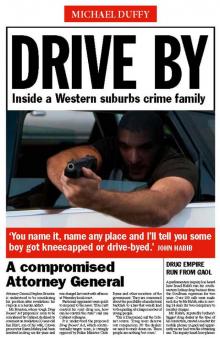 Drive By
Drive By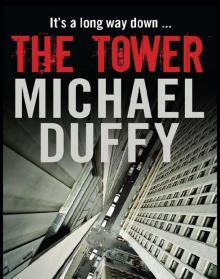 The Tower
The Tower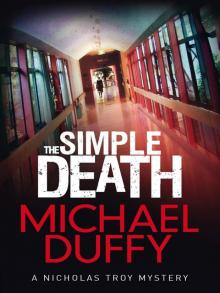 The Simple Death
The Simple Death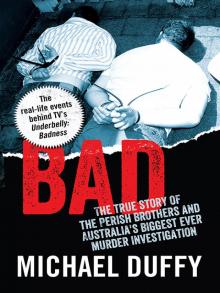 Bad
Bad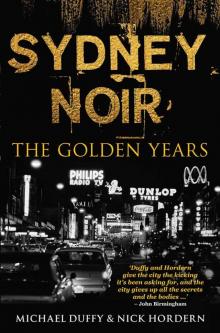 Sydney Noir
Sydney Noir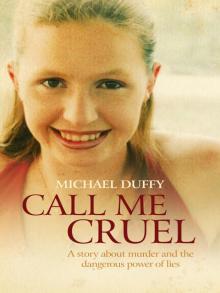 Call Me Cruel
Call Me Cruel